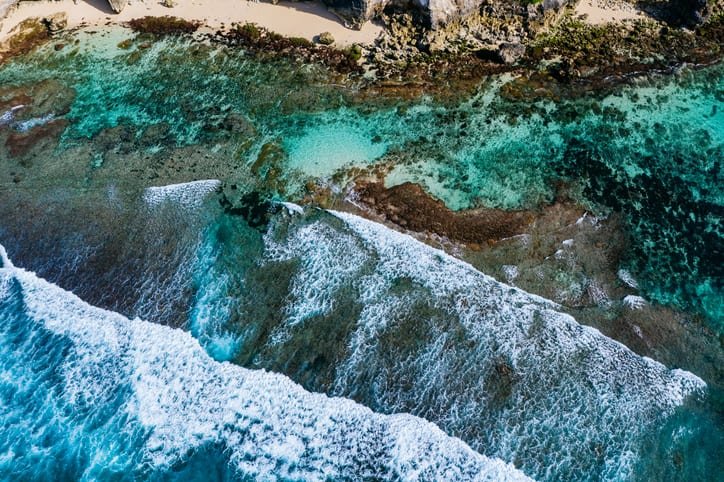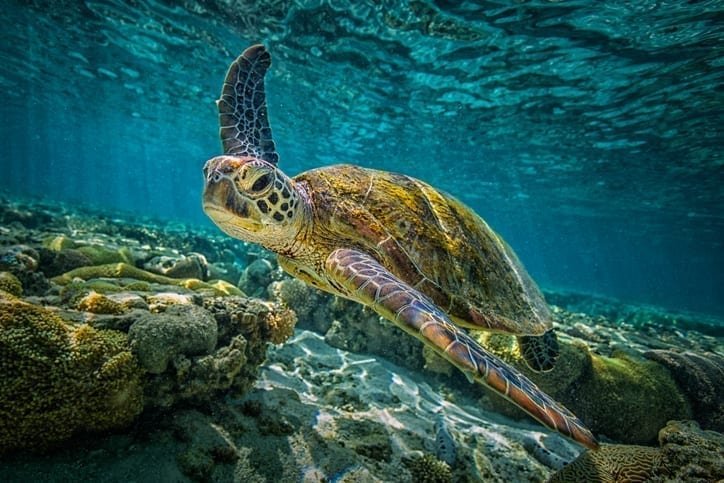Today on World Ocean Day (08 June 2021), countries from all four corners of the world – from India to Guyana, South Korea to Austria – have pledged to support the ‘30by30’ commitment which is being championed by the UK-led Global Ocean Alliance and the High Ambition Coalition for Nature and People, co-chaired by the UK, Costa Rica and France.
This next milestone follows a successful meeting of the G7 Climate and Environment ministers, during which all members agreed to champion the global ‘30×30’ target to conserve or protect at least 30% of the world’s land and at least 30% of the world’s ocean by 2030, as well as committing to ‘30×30’ domestically.
Highly Protected Marine Areas
The UK has also launched plans to increase protections for England’s waters through a pilot scheme to designate marine sites in England as ‘Highly Protected Marine Areas’.
The selected sites would see a ban on all activities that could have a damaging effect on wildlife or marine habitats.
This follows the independent Benyon Review, commissioned in 2019, which recommended that Highly Protected Marine Areas would have an important role in helping the marine ecosystem recover.
As well as helping drive marine recovery, the review also highlighted other potential benefits of the sites, including increased tourism.
The sites to be piloted could be in or outside of existing Marine Protected Areas where they would benefit from a substantially higher level of protection. They will be identified by Natural England and the Joint Nature Conservation Committee with input from stakeholders with a formal consultation set to launch next year.
‘I am delighted that the Government has committed to implement Highly Protected Marine Areas with a number of pilot sites. Natural England’s evidence-based advice has been instrumental in determining the need for special protection for our most vulnerable marine wildlife.
‘We look forward to working closely with Defra to identify pilot sites and use this great opportunity to explore how highly protected areas can mitigate the impact of human activities on the ocean, support its recovery to a more natural state, and enhance vital marine ecosystems.’
TONY JUNIPER
Chair of Natural England
Oceans and mental health
The news comes as Defra and the Ocean Conservation Trust publish the results of the largest ever survey in England and Wales on public attitudes to our oceans.
The survey finds that 85% of people consider marine protection personally important to them. Of those who had visited our coastlines last year, 80% said it was good for their physical health and 84% said it was good for their mental health.
The findings also show that when asked about the greatest threats to the marine environment, participants were most concerned about pollution, with overfishing, climate change and loss of marine habitats also ranking highly.
Operation Ocean Witness
While greater marine protections have been welcomed, campaigners have warned that the government’s plans lack urgency.
Oceana has today revealed that bottom trawlers spent 68,000 hours fishing in UK protected areas set up specifically to protect the seabed in 2020.
As a result, Greenpeace UK has launched Operation Ocean Witness, a six-month operation that will document and expose the destructive fishing practices the UK government still permits in UK protected areas.
It will also document the beauty and biodiversity of the UK’s seas, and engage with fishing communities along the south coast to build a movement for a fairer, more sustainable future for the UK’s seas.
 Play Video about This Rock Might Just Save The World
Play Video about This Rock Might Just Save The World Play Video about Play 2 hours of rock
Play Video about Play 2 hours of rock Play Video about Play 2 hours of brook
Play Video about Play 2 hours of brook Play Video about Play 2 hours of sheep
Play Video about Play 2 hours of sheep















































